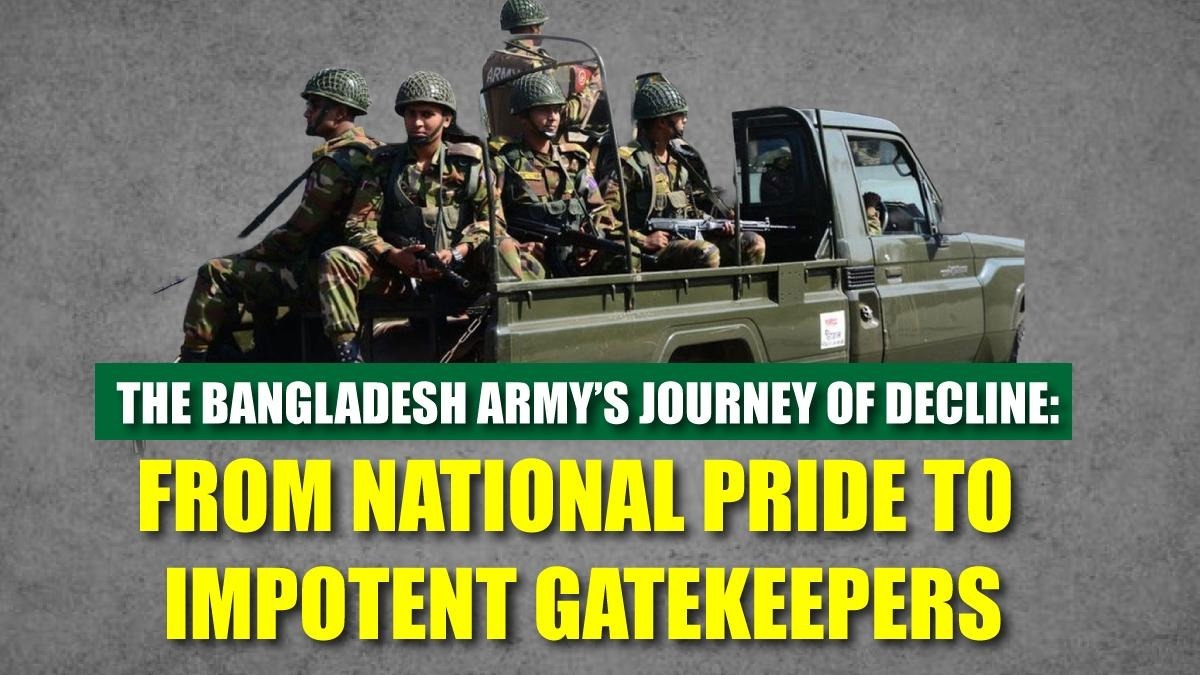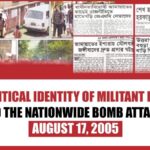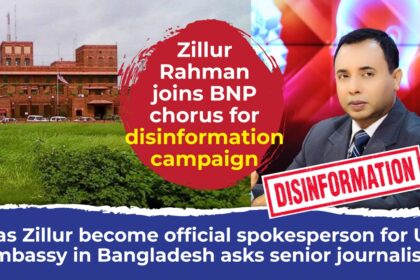On August 5 of last year, a civil-military coup overthrew the country’s elected government—engineered with foreign funding, backed by Islamic jihadist militants, and supported by the Bangladesh Army. In the aftermath of the July riots, one of the masterminds of the conspiracy, Army Chief General Waqar-uz-Zaman, delivered a trembling speech to the media, filled with empty assurances.
But reality proved to be the exact opposite. The army not only abdicated its responsibilities—it deliberately handed over the keys to national security to extremists.
The consequences of withdrawing military protection from Jatrabari police station were horrific. That day, as in the dark night of March 25, 1971, police blood was spilled once more. Forty-three police officers were killed at just one station—yet there was no response from the army. This was no accident; it was part of a calculated creation of a security vacuum. The attack, arson, and eventual bulldozing of Bangabandhu’s residence at 32 Dhanmondi—cradle of Bangladesh’s independence—all occurred under the army’s watch. They stood and watched. Was this inaction accidental—or a form of silent endorsement?
After the coup, prison gates were flung open. The notorious leader of Ansarullah Bangla Team was released—riding out in a military vehicle. He publicly declared the establishment of Islamic rule. A jihadist using an army vehicle—was this a random event? Or part of official state sponsorship?
When NCP leaders in Gopalganj spread vile propaganda against Bangabandhu, citizens took to the streets in protest. The army responded with bullets. Corpses piled up. But the true instigators? They were safely escorted away—in army vehicles.
Houses of religious minorities were set on fire, temples vandalized, men and women murdered indiscriminately—all right under the army’s nose. They came, supposedly, to “maintain peace,” but did nothing to stop those breaking it. After the arrest of Hindu religious leader Chinmoy Krishna Das, brutal crackdowns were unleashed on his supporters. Whose side is the army on—of the nation, or the forces seeking to dismantle it?
When a country’s military forgets its true duty, the downfall of that nation becomes inevitable. The army’s inaction, its complicity—these are not mere errors. They are premeditated betrayals. The military did not just walk away from its responsibility—it empowered the enemies of the state. History will not erase this stain. Will future Bangladesh ever taste liberation from the shadow of this army? Time will tell.
But today’s silence, today’s complicity—these will remain stuck to the body of the state like dried blood. No matter how hard one tries, they will not wash away.





